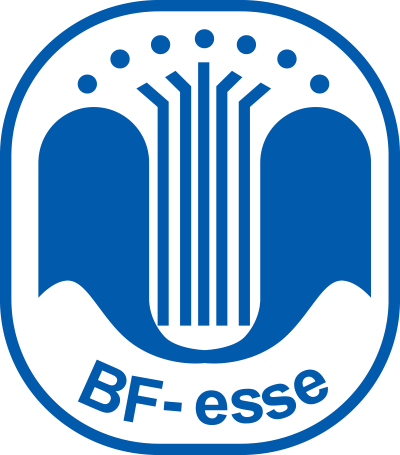EU Regulations on Organic Food Supplements:
A Complete Guide
Organic supplement manufacturing is tightly controlled by the European Union. Regulations define not only which raw materials are allowed, but also how they are calculated in formulations, declared on labels, and certified as “organic.” For brand owners, the complexity can be overwhelming.
At BF-EssE, as a certified organic contract manufacturer, we translate these laws into clear actions for our partners. This article breaks down the key legal frameworks:
At BF-EssE, as a certified organic contract manufacturer, we translate these laws into clear actions for our partners. This article breaks down the key legal frameworks:
- Regulation (EU) 2018/848 (the basic act for organic production and labeling).
- Commission Implementing Regulation (EU) 2021/1165 (lists of authorized products and substances).
- Regulation (EC) No 1333/2008 (general food additives framework, including supplements).
Regulation (EU) 2018/848:
The Foundation of Organic Certification

Regulation (EU) 2018/848 is the central law for organic production and labeling. It sets the basic principles:
- At least 95% of the agricultural ingredients must be organic for a product to carry the EU organic logo (Article 30).
- If organic content is below 95%, the term “organic” can only be used in the ingredient list, not in the product name.
- Annex II provides detailed rules for processed food production, including the handling of additives, yeasts, and non-agricultural substances.
Key clause (Annex II, 2.2.4):
- Some additives must be counted as agricultural ingredients (if marked with an asterisk in later regulations).
- Others (e.g., minerals or certain preparations) are not counted.
- Yeast and yeast products are always calculated as agricultural.
- This framework creates direct consequences for supplement formulation: the choice of excipients can decide whether a product achieves the 95% threshold.
Commission Implementing Regulation (EU) 2021/1165:
Lists of Allowed Additives
Commission Implementing Regulation (EU) 2021/1165 of 15 July 2021 establishes the official lists of substances authorized in organic production. It clarifies which additives count as agricultural ingredients.
Annex V defines how food additives are to be calculated.
Annex V defines how food additives are to be calculated.
- Example: “For the purpose of the calculation of the percentages referred to in Article 30(5) of Regulation (EU) 2018/848, food additives marked with an asterisk in the column of the code number shall be calculated as ingredients of agricultural origin.”
- E170 is authorized in organic supplements but cannot be used for coloring or enrichment.
- It is listed as a product of plant or animal origin but is not calculated as an agricultural ingredient in the percentage calculation.
- This creates confusion for formulators who misinterpret Annex V vs. Annex II — but the regulation is clear: calcium carbonate is an authorized additive, but not an agricultural ingredient for % calculation.
- This distinction matters when labeling supplements as organic vs. “made with organic.”
Additive Framework
Regulation (EC) No 1333/2008 establishes the Community list of approved additives and their conditions of use. For food supplements, Annex II, Part E provides the relevant rules:
Category 17.1 (solid supplements: capsules, tablets, powders):
Category 17.1 (solid supplements: capsules, tablets, powders):
- E464 (Hydroxypropylmethylcellulose, HPMC) → Quantum satis
- E170 (Calcium carbonate) → Quantum satis
- Category 17.2 (liquid supplements):
- E464 → Quantum satis
- E170 → Quantum satis
- Category 17.3 (syrup-type or chewable supplements):
- E464 → Quantum satis
- E170 → Quantum satis
Practical Implications for Organic Supplement Manufacturing

HPMC (E464)
- Widely used for capsule shells.
- Authorized in organic production (per Regulation 2021/1165).
- Counted as a non-agricultural ingredient.
- Since gelatin is not typically available in organic form, HPMC is the only realistic capsule shell option for BIO supplements.

Calcium Carbonate (E170)
- Allowed as a filler or excipient in capsules, tablets, and powders.
- Must not be used as a colorant or fortifier in organic products.
- Not counted as an agricultural ingredient in the organic percentage calculation.

Formulation Challenges:
- Excipients are limited. Magnesium stearate (common in conventional capsules) is generally not allowed unless organic-certified.
- Flavors and colors must be of certified organic origin.
- Every additive must be cross-checked against both 1333/2008 and 2021/1165 to ensure compliance.
We continuously monitor EU regulatory updates to keep formulations compliant.
Our R&D team knows how to substitute restricted excipients with organic alternatives.
We manage documentation and audit preparation, so your product passes inspection.
As a certified organic material processor, we can handle both raw materials and finished supplements.
Our R&D team knows how to substitute restricted excipients with organic alternatives.
We manage documentation and audit preparation, so your product passes inspection.
As a certified organic material processor, we can handle both raw materials and finished supplements.
Final Thoughts
Navigating EU regulations for organic supplements requires expertise. Laws like 2018/848, 2021/1165, and 1333/2008 define in detail what is allowed, how to calculate agricultural percentages, and how excipients like HPMC and calcium carbonate can be used.
At BF-EssE, we not only follow these rules — we help brands succeed within them. From capsules to sachets and blisters, we ensure your organic supplements meet EU BIO standards with full compliance.
Frequently Asked Questions on Organic Regulations
No. While E170 is authorized for use, it is not calculated as an agricultural ingredient for the 95% organic threshold under Regulation (EU) 2018/848 and 2021/1165.
Not typically. Gelatin must itself be certified organic, which is rarely available. This makes HPMC (E464) the only practical capsule option under EU BIO rules.
It means “as much as needed.” Additives like E464 (HPMC) and E170 (calcium carbonate) may be used without a maximum limit, provided the amount is justified and safe.
That requirement comes from Regulation (EU) 2018/848, Article 30, which sets labeling thresholds for organic claims.
We verify certificates, replace non-compliant excipients, prepare audit-ready documentation, and manufacture supplements under BIO certification, covering encapsulation, sachets, jars, and blisters.
Disclaimer
The information provided on this page is for informational and educational purposes only and does not constitute legal, regulatory, or medical advice. While BF-EssE makes every effort to ensure the accuracy of content based on current EU and EFSA guidelines, readers are responsible for verifying all information with the relevant competent authorities and up-to-date regulatory sources.
Food supplement regulations may vary by country and are subject to change. Maximum permitted dosages, labeling requirements, and health claim permissions differ across jurisdictions.
Always consult with qualified regulatory professionals or national food safety authorities before marketing or formulating a food supplement.
Food supplement regulations may vary by country and are subject to change. Maximum permitted dosages, labeling requirements, and health claim permissions differ across jurisdictions.
Always consult with qualified regulatory professionals or national food safety authorities before marketing or formulating a food supplement.



